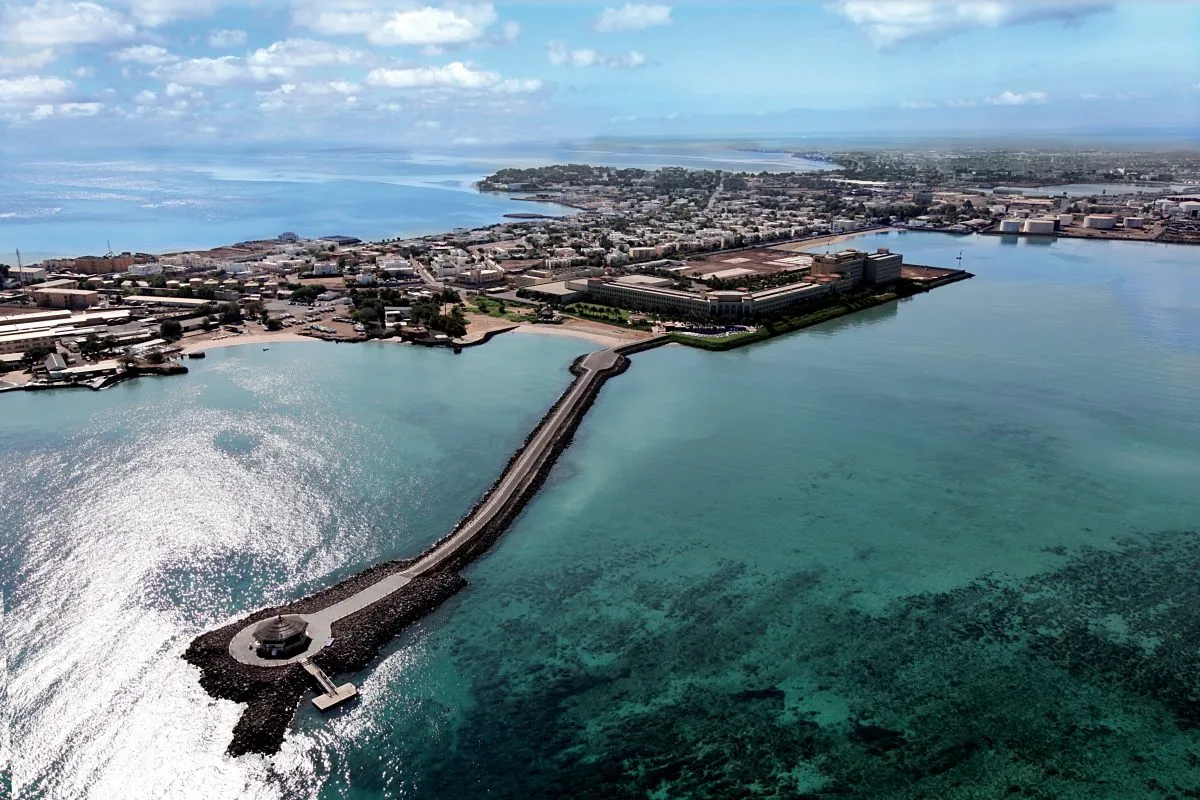With a modern port at the crossroads of international trade routes, Djibouti has established itself as a substantial transshipment centre. The government is now seeking to build on this advantage by diversifying the economy, upgrading its infrastructure and attracting private sector investment in new sectors. With the African Continental Free Trade Agreement (AfCFTA) now in place, there is no better time to build an African trading hub.
Djibouti’s strategy has drawn comparisons with Singapore and Dubai, both of which have demonstrated that starting with a small population and territory need not be a serious impediment to becoming a major trade centre.
The parallel with Singapore is particularly interesting, given the strategic geographical location of both countries. In Djibouti’s case, its location on the approaches to the Red Sea means that it lies at the nexus of shipping lanes connecting Europe, Asia, East Africa and the Persian Gulf. The importance of the Suez Canal means that about 30% of the world’s seaborne cargo passes through the Bab el-Mandeb strait.
The economy of Djibouti has performed solidly over the past couple of decades, with annual average GDP growth of 4.4% between 2000 and 2021.
According to the World Bank, annual GDP per capita doubled to $3,136, with $2.3bn foreign direct investment (FDI) attracted over the same period. Indeed, FDI as a proportion of GDP jumped from 0.6% at the turn of the millennium to 5.5% over 2015-22.
The African Development Bank forecasts economic growth of 6.5% this year, making it one of the fastest-growing economies in Africa.
The centrepiece of the government’s long-term economic strategy is Vision 2035, which aims to position Djibouti as an African economic and trade hub, while reducing extreme poverty and building the foundations for shared growth.
By harnessing growing trade links with Asia and the rest of Africa, the government hopes to attract private sector investment in IT, mineral resources and agriculture to achieve 10% average annual GDP growth.
In February, the World Bank Country Director for Djibouti, Egypt, and Yemen, Stephane Guimbert, said: “Djibouti is uniquely placed, with assets that can be leveraged to expand its market and attract international private investors. As Djibouti enters its next stage of development, it is essential that the private sector drives growth and that the benefits of growth be shared by all segments of society, particularly women and young people.”
The government established a sovereign wealth fund in March 2020 to support long-term economic development, diversify the economy and help provide for future generations. It is targeting investment in sustainable natural resources and energy, telecommunications and digital infrastructure, financial services, general infrastructure, technology, tourism, healthcare and education.
The AfCFTA should create a growing number of opportunities for much greater cross-border trade on the continent. Not all countries will be equally successful in attracting FTA-related investment and jobs, but those which position themselves as trade hubs and create attractive investment regimes will be particularly well placed.
By improving its transport connections, Djibouti is already putting some of the necessary infrastructure in place. The government is now seeking to publicise its investment benefits, including the absence of foreign exchange and profit repatriation restrictions.
Port at the heart of strategy
The centrepiece of the country’s trade infrastructure is Doraleh Multipurpose Port, which is owned by Djibouti Ports & Free Zones Authority (66.5%) and China Merchants Port Holdings Company (23.5%),. Five kilometres to the west of Djibouti City, it was completed in 2017 at a cost of $580m.
It has six berths with a depth of 15.3m, spread over container, ro-ro, bulk and breakbulk terminals, with plans for another 11 berths. As well as being an engine of economic growth in its own right, the port will support export-orientated investors from other sectors.
In July 2023, Afreximbank agreed a $120m financing facility with Djibouti’s Great Horn Investment Holding to support the development of Damerjog Industrial Development Free Trade Zone.
Another $35m is being provided by Djibouti’s Banque pour le Commerce et l’Industrie Mer Rouge. Part of the money will be used to build a new oil jetty and storage depot to support shipping operations in the country.
The President of Afreximbank, Prof.
Benedict Oramah, said that the deal could support “the development of the industrial capacity of Djibouti and its neighbours by assuring the implementation of critical trade-enabling infrastructure”.
It is noteworthy that the engineering, procurement and construction (EPC) contractor on the project is Morocco’s SOMAGEC, in line with Afreximbank’s commitment to supporting African contractors.
The port authorities have had particular success in serving landlocked Ethiopia. Djibouti has been Ethiopia’s port of choice since the latter became landlocked in 1993, following the secession of Eritrea, and handles 95% of all Ethiopian cargo.
This role was strengthened by the completion of a new 753km electric railway between Addis Ababa and Djibouti in 2015, slashing transport times from three days on the old, colonial-era line to 20 hours. This relationship helped Djibouti benefit from the fastest-growing economy on the continent over the past 15 years.
Both freight and passenger volumes on the line have increased by 35-40% a year, so it is now operating at its maximum capacity of 2m tons/year.
As a result, Ethio-Djibouti Standard Gauge Railway Share Company now plans to double the line’s capacity. Its ability to finance expansion has grown as turnover has increased. It recorded income of 3.3bn birr ($60m) in the financial year 2022-23, up 35% on the previous year.
Upgrading infrastructure
Beyond the port sector, the government is seeking to upgrade other forms of infrastructure. In January, Japan International Cooperation Agency (JICA) signed a deal to help finance the construction of a new bridge across the Ambouli River, which cuts the city of Djibouti in two.
One of the two existing crossings cannot be used by heavy vehicles, while the other is prone to flooding. The cost of the project has not been finalised but the bridge will be 113m long and is expected to be completed within less than five years.
Djibouti currently relies on power imports from Ethiopia via an interconnector that was completed in 2011, plus 123MW of domestic thermal generation capacity, of which about half is inoperable because it consists of outdated diesel-fired capacity. However, the government aims to produce all electricity from wind and solar projects by 2025.
AMEA Power of the United Arab Emirates has signed an agreement with the Ministry of Energy and Natural Resources to develop a 30MW PV project, while initial drilling has begun around Lake Assal with the aim of building a geothermal power plant.
Siemens Gamesa completed Djibouti’s first wind farm in September 2023. The 57.8MW Red Sea Power project near Lake Goubet has plans to add another 45MW in Phase 2.
With power and transport infrastructure in place and improving, the government is now also keen to strengthen the country’s digital infrastructure. Data centres, other IT investors and financial services companies could make use of Djibouti’s international connections to 10 subsea telecoms cables. Global demand for data centre capacity is growing quickly, so there is scope for new international centres to emerge.
Tourism has also been highlighted as a likely growth area, with the government setting a target of attracting 500,000 tourists a year by 2035. The coastline includes coral reefs, the picturesque Moucha Islands and plentiful sea life, while year- round high temperatures could attract visitors. The tourism sector could also become an engine for creating employment as it offers jobs with a wide variety of skills.
For more information and to apply to attend the Djibouti Forum 2024 please click the link below.
Want to continue reading? Subscribe today.
You've read all your free articles for this month! Subscribe now to enjoy full access to our content.
Digital Monthly
£8.00 / month
Receive full unlimited access to our articles, opinions, podcasts and more.
Digital Yearly
£70.00 / year
Our best value offer - save £26 and gain access to all of our digital content for an entire year!

 Sign in with Google
Sign in with Google 



